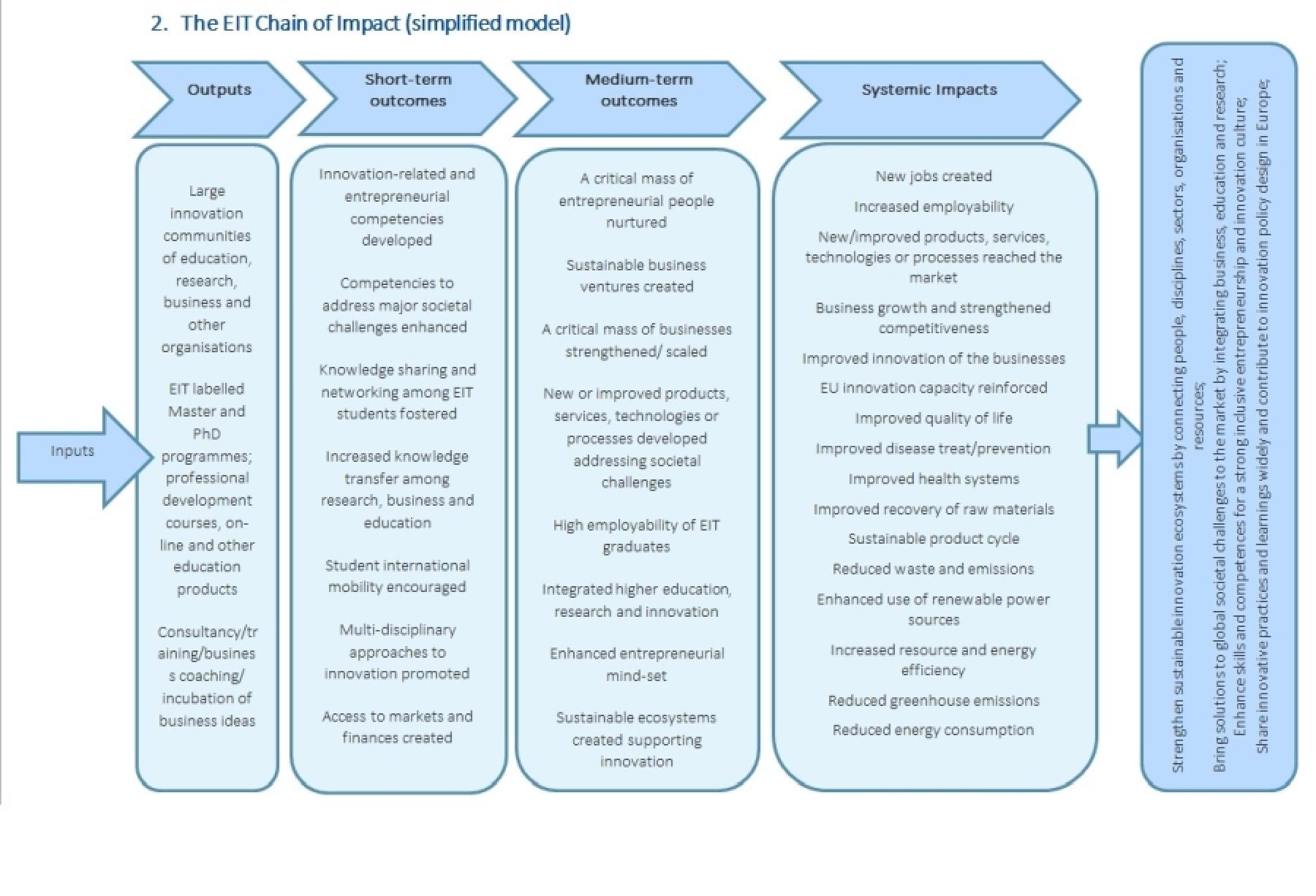Date of event: Friday, November 23, 2018 - 09:30 to 17:00
Where: Ispra, Italy
The EIT Approach to Impact
The EIT’s next Strategic Innovation Agenda (2021 – 2027) will build on the successful results and emerging impact of the EIT to provide the European Union with a strong innovation engine that can effectively address its major challenges and give it a central place in the EU’s innovation landscape. This new strategy will be underpinned by a solid impact focused approach to delivering world-class solutions to targeted societal challenges.
1.EIT High-Level impact
The EIT impact will be closely aligned with and will contribute to the future EU Framework Programme for Research and Innovation’s targets and ambition. At the same time, the EIT unique features [1] predetermines the multi-layer dimension of the envisaged impact.
EIT impact on innovation
-
Improved capacity of research, education, business and other organisations to innovate through enabling institutional changes to integrate better the knowledge triangle, creating sustainable ecosystems supporting innovation, and enabling new start-ups and established business to grow their activity and achieve greater reach with their innovations
-
Improved capacity of graduates and entrepreneurs to turn their idea for a new product or process into innovations launched onto the market quicker through facilitated access to potential partners, investors and markets, and improved understanding of markets
-
Reduced gaps in innovation performance across Europe through boosting the innovation capacity of Member States that are modest and/or moderate innovators, whilst having a high potential for excellence
EIT economic impact: job creation and economic growth
-
Jobs and revenue generated by start-ups and scale-ups supported by the EIT as they grow
-
New markets open as a result of innovation projects supported by EIT
-
New technology created systems, influenced by EIT
-
High employability rate of EIT graduates
EIT societal impact: improved quality of life
Effective solutions developed for global societal challenges through
-
building a zero-carbon economy and climate resilient society,
-
driving digital innovation
-
securing adequate supply of energy produced in a sustainable and affordable manner
-
promoting healthy living and active ageing
-
sustainably exploring, recycling and substituting raw materials
-
securing an adequate supply of high quality food
-
creating an integrated manufacturing system
-
ensuring a smart, greener, more inclusive, and safer integrated urban mobility system.
[1] The EIT adopts a broad definition of innovation, which includes societal challenges, it enables innovation by integrating education, research and business, and finally, the EIT achieves its objectives as a result-oriented investor into KICs: independent legal entities coordinating top public and private organisations in the knowledge triangle.

| Originally Published | Last Updated | 18 Dec 2019 | 15 Mar 2021 |
| Knowledge service | Metadata | Composite Indicators |
